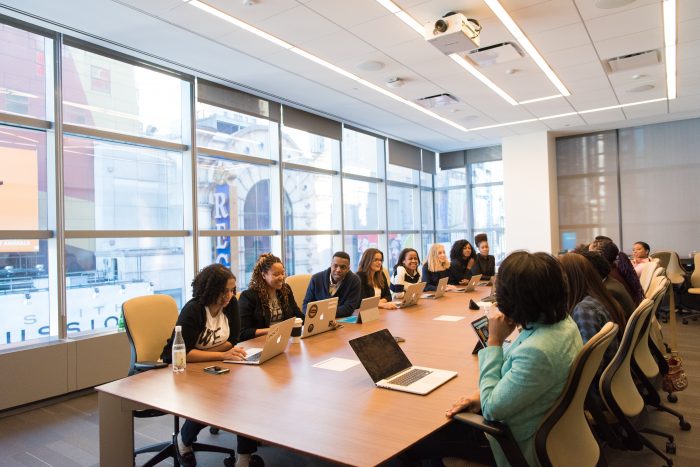Good morning,
I hope you’re having a good start to your day! Today, we’re going to focus on interpersonal racism, how it can manifest in the workplace, and how indirect or unintentional statements or actions can perpetuate stereotypes and discrimination.
What comes to mind when you hear the term professionalism? Chances are that your thoughts are likely influenced by Western and primarily white cultural norms. As discussed in the Stanford Social Innovation Review’s “The Bias of ‘Professionalism’ Standards” (in today’s articles), our nation’s history has established Western white traits as our culture’s norms and expectations. Even as we as a society are marking strides toward greater representation and a respect for diversity, this work is never complete. We must recognize where there are still opportunities to broaden our perspective and make spaces more understanding, accessible, and accepting of all people.
As always, we must remember first that our experiences may not be the same as those of our colleagues. My experience as a woman is not the same as the experiences of my male colleagues. My experience as a white woman is not the same as those of my black, Latinx, Asian, and Middle Eastern colleagues. My experience as an able-bodied person is not the same as those of someone who has a disability.
Speaking in the racial equity context, existing in a professional environment influenced by white cultural norms can create challenges for people of color. From eliminating people from hiring pools based off of their names to needing to overperform to avoid scrutiny, studies from the National Bureau of Economic Research demonstrate barriers that non-white people can experience in the workplace because of their race. You can learn more about these in today’s readings. Code-switching is defined by the Harvard Business Review as “adjusting one’s style of speech, appearance, behavior, and expression in ways that will optimize the comfort of others in exchange for fair treatment, quality service, and employment opportunities”.
Over the last few months, I’ve spoken with people of color who work at the Department of Human Services (DHS) about their experience working here and their treatment in the workplace. I’ve heard stories of people in management positions having their authority distrusted and sometimes undermined, people who have been afraid to discuss their feelings on national and local news stories related to race for fear of alienating their coworkers, and people who have been objectified because of their race. We must all build an awareness of the challenges and barriers that people of color can face in the workplace in order to actively break down systems, structures, and norms that make people feel unwelcome, unsupported, or unseen. This TED talk on microaggressions gives an overview of something we can all do to build a more actively equitable and welcoming workplace culture. Organizational Change Processes and Leadership Development from the Racial Equity Tools give an overview of what we can do to advance equity among our teams and in our workplace.
As you read and watch these resources, I encourage you to think about the following questions:
- What are the racial connotations of the word “professionalism”?
- What is code switching? Have you ever noticed yourself or your coworkers engaging in this?
- Where and how did you learn to exist in a professional environment? What were you told to do?
- Have you ever felt uncomfortable in a professional environment because of your identity?
- Have you ever been the receiver of a microaggression? How did it make you feel?
- Have you ever said a microaggression, whether you realized it at the time or not? How can you work to eliminate them in your workplace?
I also encourage you to have these conversations with your coworkers if you are comfortable and able to do so. This is an opportunity for us to learn together, share our experiences, foster understanding and community, and build stronger bonds through these difficult but extremely necessary conversations. Remember, these articles are meant to be a foundation and introduction that you can build from. They are not the only sources and perspectives on these issues.
Talk to you tomorrow,
Teresa Miller, Secretary of the Department of Human Services








